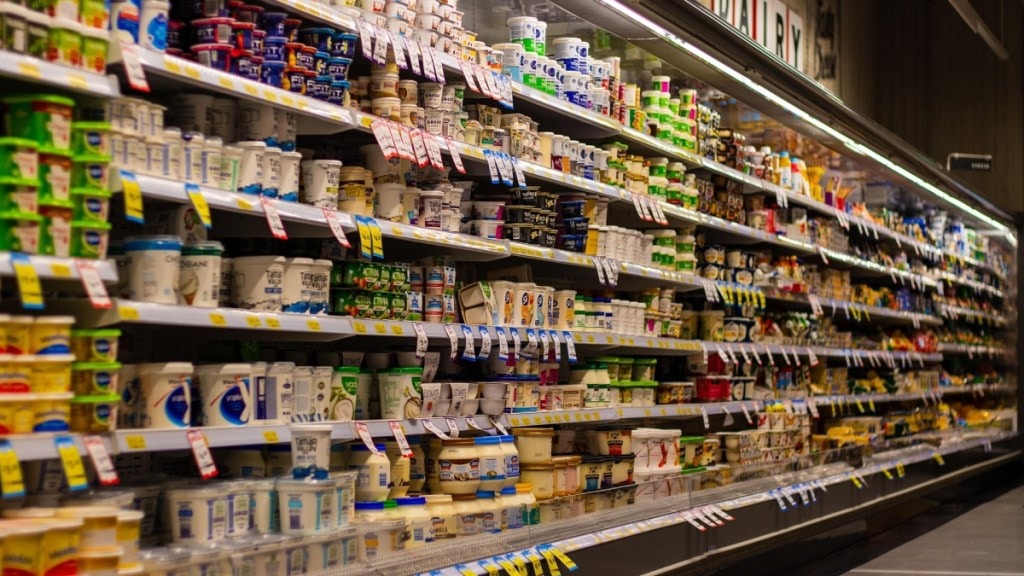Odd pricing on small packs of ice-creams and shampoos has become visible with the GST rate cuts announced in these categories. Firms such as Mother Dairy have taken price cuts on Rs 10 ice-creams such as ice-candies, vanilla cups and chocobars, which are popular impulse products, revising them to Rs 9 a unit. Procter & Gamble (P&G) has taken price cuts on Rs 2 and Rs 3 shampoo sachets, revising price points to Rs 1.77 and Rs 2.66, respectively. It has also cut its Pampers pack of one baby diaper (sleep pants) to Rs 9 from Rs 10 earlier.
Challenge of passing on benefits
Similarly, biscuits and snacks may also see odd pricing, Mayank Shah, vice-president, Parle Products, said in a conversation with FE, though it is likely to be a temporary measure. Typically, companies such as Parle Products and Britannia derive over 50% of their sales from packs priced at Rs 5, Rs 10, Rs 15 and Rs 20.
“Small packs are significant for biscuit and snack companies. Large packs are about a third of our sales. We understand that the GST benefits have to be passed to consumers. So for now, we are taking direct price cuts across pack sizes. But we will increase grammage on small packs once new inventory comes into the market in the next one month,” Shah said.
Cumulatively, GST benefits to the tune of 10-13% will be passed on to consumers through price cuts on large packs and grammage increase on small packs, he added.
Experts caution that removing popular price points such as Rs 2 or Rs 3, Rs 5 and Rs 10 is risky, given that coinage becomes an issue. But Manish Bandlish, MD, Mother Dairy India, says that going in for new packaging and labelling is difficult at short notice.
“We’ve decided that we will pass on the full gains of the GST rate cuts to consumers. While benefits on small packs are best served through a weight increase, this is difficult to do quickly, since it will require fresh packaging, labelling, etc, which will take time. For now, we are passing on the price benefit to consumers. But we will evaluate the response to it,” Bandlish told FE.
Industry executives said that P&G may also monitor the situation closely, given that sachets typically constitute over 40-50% of sales for personal care companies. Firms use shampoo sachets to increase penetration in smaller towns, rural areas and low-income groups in urban areas, experts said, with odd pricing hurting sales.
Rivals such as Hindustan Unilever (HUL), according to trade sources, has not indicated its pricing strategy on small packs, though it has come out with recent newspaper advertisements covering mostly larger packs across categories such as soaps, shampoos, toothpastes, compact powder, soups, ketchups, jams, nutrition and coffee.
Firms such as Dabur, Marico, Emami, Godrej Consumer, Britannia, Gujarat Co-operative Milk Marketing Federation (GCMMF), the maker of the Amul brand of products, are yet to disclose their revised price lists following the GST cuts. However, these companies have given indications to trade, sources said, that they may pass on benefits to consumers through price cuts across pack sizes on existing stocks for now and switching to grammage increase on low-unit packs (LUPs) once the new inventory hits the market. Large packs, on the other hand, will continue to see direct price cuts, effective September 22, when GST reforms will be implemented.
Trade and consumer impact
“Odd pricing creates disputes between trade and consumers, which most FMCG distributors and companies will want to avoid,” Dhairyashil Patil, national president, All India Consumer Products Distributors Federation (AICPDF), said.
“We expect new stocks to hit the market in the next one month or so, till then, companies will likely pass on straight price cuts across small and large packs to ensure consumers get the GST benefits,” Patil said.
In a conversation with FE, Arvind Singhania, chairman & CEO of Ester Industries, a Delhi-based company which makes flexible packaging used in food and beverage products, said that inquiries from companies for new packaging material had increased in the last few days, owing to the changes that the GST rate cuts had brought about.
“Inquiries suggest that smaller packs may see grammage increase and larger packs will see price cuts,” Singhania said. “We also expect a volume surge of around 8-9% in FMCG due to the GST cuts as demand is likely to grow. This has implications for us as our orders will increase, which is a positive,” he said.
FMCG firms get labelling relief; existing stocks can be exhausted till March-end 2026
FMCG companies will not be required to stick new price labels on existing stocks to announce the pricing changes on products following the GST rate rationalisation, the Department of Consumer Affairs, Government of India, said in a new notification issued Thursday. The latest notification, signed by the director, legal metrology, Ashutosh Agarwal, said that companies can exhaust existing inventory till March 31, 2026 rather than December 31, 2025 as indicated last week. Firms will also not be required to publish revised MRPs in newspapers through ads, easing compliance for firms at a time when the GST implementation date of September 22 nears. Instead, companies can now inform trade channels and authorities through circulars, a far more practical and cost-efficient approach, tax experts said.
